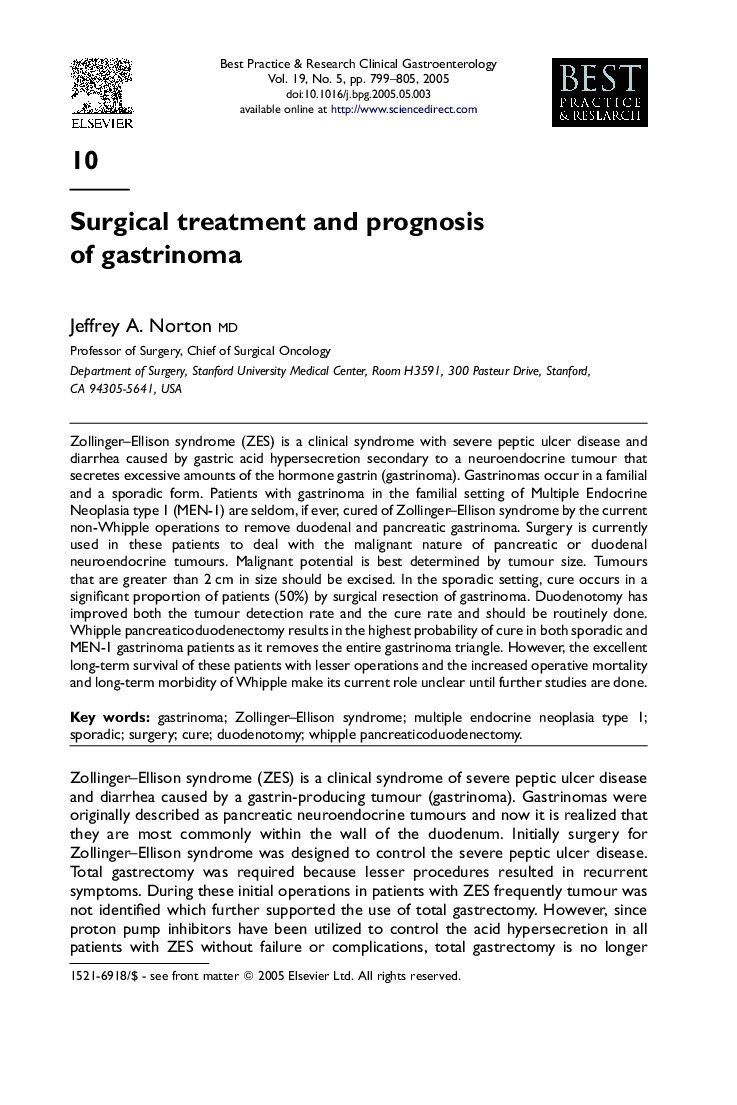| Article ID | Journal | Published Year | Pages | File Type |
|---|---|---|---|---|
| 9236345 | Best Practice & Research Clinical Gastroenterology | 2005 | 7 Pages |
Abstract
Zollinger-Ellison syndrome (ZES) is a clinical syndrome with severe peptic ulcer disease and diarrhea caused by gastric acid hypersecretion secondary to a neuroendocrine tumour that secretes excessive amounts of the hormone gastrin (gastrinoma). Gastrinomas occur in a familial and a sporadic form. Patients with gastrinoma in the familial setting of Multiple Endocrine Neoplasia type 1 (MEN-1) are seldom, if ever, cured of Zollinger-Ellison syndrome by the current non-Whipple operations to remove duodenal and pancreatic gastrinoma. Surgery is currently used in these patients to deal with the malignant nature of pancreatic or duodenal neuroendocrine tumours. Malignant potential is best determined by tumour size. Tumours that are greater than 2Â cm in size should be excised. In the sporadic setting, cure occurs in a significant proportion of patients (50%) by surgical resection of gastrinoma. Duodenotomy has improved both the tumour detection rate and the cure rate and should be routinely done. Whipple pancreaticoduodenectomy results in the highest probability of cure in both sporadic and MEN-1 gastrinoma patients as it removes the entire gastrinoma triangle. However, the excellent long-term survival of these patients with lesser operations and the increased operative mortality and long-term morbidity of Whipple make its current role unclear until further studies are done.
Related Topics
Health Sciences
Medicine and Dentistry
Endocrinology, Diabetes and Metabolism
Authors
Jeffrey A. (Professor of Surgery, Chief of Surgical Oncology),
